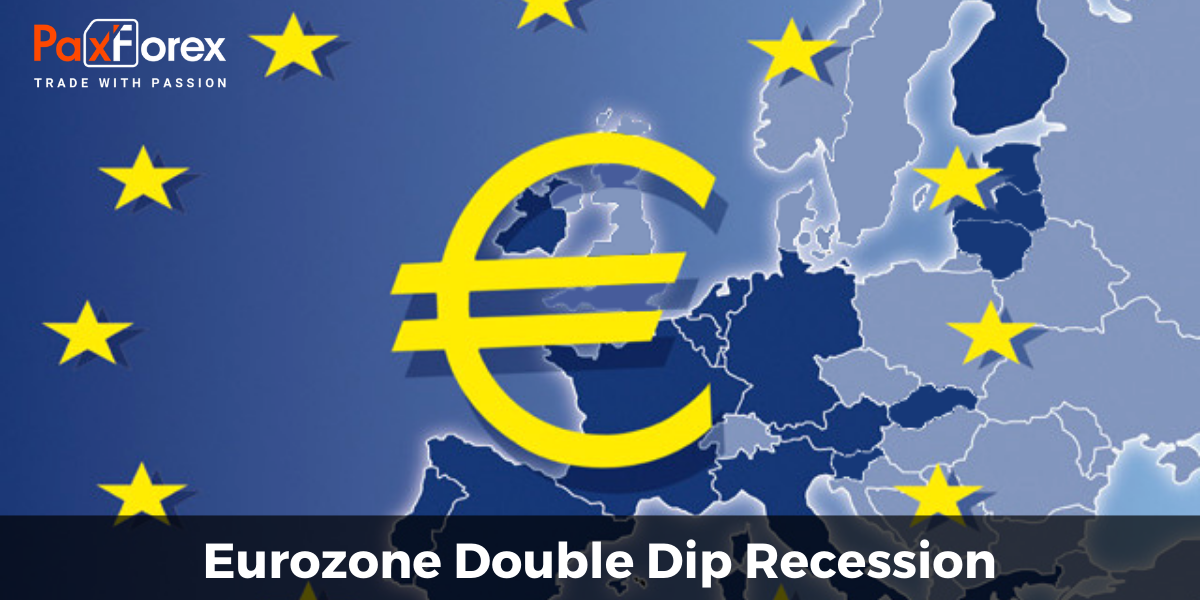
The 17 member Eurozone economy has contracted 0.1% in the third-quarter of 2012 as the debt contagion started to bite northern economies such as Germany and the Netherlands. The Eurozone economy contracted 0.2% in the second-quarter of this year. This is the first technical recession in the past three years, but to most citizens in the economy block it felt like the recession never ended.
The economic outlook is very negative and the recession is poised to deepen in the next few quarters which will amplify the problems in the financial system due to the debt contagion which continues to grow and cause more issues to the Eurozone whose policymakers continue to delay necessary steps in order to contain the problems.The Eurozone economy is worth over €9.5 Trillion and has roughly 332 Million citizens and therefore rivals the economy of the U.S. The entire EU posts the biggest global economy. The EU is the largest export market for the U.S. and the recession in the Eurozone is reason for great concern of the global economy.
Given the close ties between the Eurozone and the rest of the EU, as the Eurozone acts as the core of the EU and eventually aims to expand in order to include all other EU member countries in the block, it will translate into widespread economic problems for the entire EU which is home to the world’s largest economy. As demand will weaken it will hurt the U.S. to a great extend as well as Japan while other emerging countries will feel the stress from the European recession potentially to a great er extend than the U.S. recession.
Five Eurozone countries are in a deep recession. Those countries include Greece as well as Spain who also entertain unemployment rates of over 25% while Portugal, Italy as well as Cyprus are in a recession as well. The Netherlands will follow suit in the fourth-quarter and saw its third-quarter GDP drop by 1.1% while Germany barely holds on to a mere 0.2% growth rate.The 27 member EU economy managed a terrible performance of 0.1% growth which is due to the 2012 Olympic boost the United Kingdom enjoyed; otherwise growth would have been negative in the EU as well. The EU is a key factor to the strength of the global economy as the global economy depends on EU demand in order to keep their growth rates intact.
Given the overall negative economic outlook due to the fiscal cliff in the U.S. which will not be resolved and plunge the country into total collapse, the ongoing debt contagion in the Eurozone as well as a slowdown in emerging markets it appears that the entire global economy will be entering a recession. The problems in the U.S. coupled with the Eurozone issues will ignite the spark which will lead to the long overdue Second Wave of the financial crisis which became evident in 2008.
Politicians have kicked the can down the road and hoped that the problems which were created decades ago would simply disappear. The problems increased every moment elected leaders avoided to address the core of the problems. The more time passes before the cores issues are resolved the longer it will take to fix the problems and the bigger the negative impact will be. This is exactly what the global economy will have to deal with now as a result of gross negligence by policy makers.







